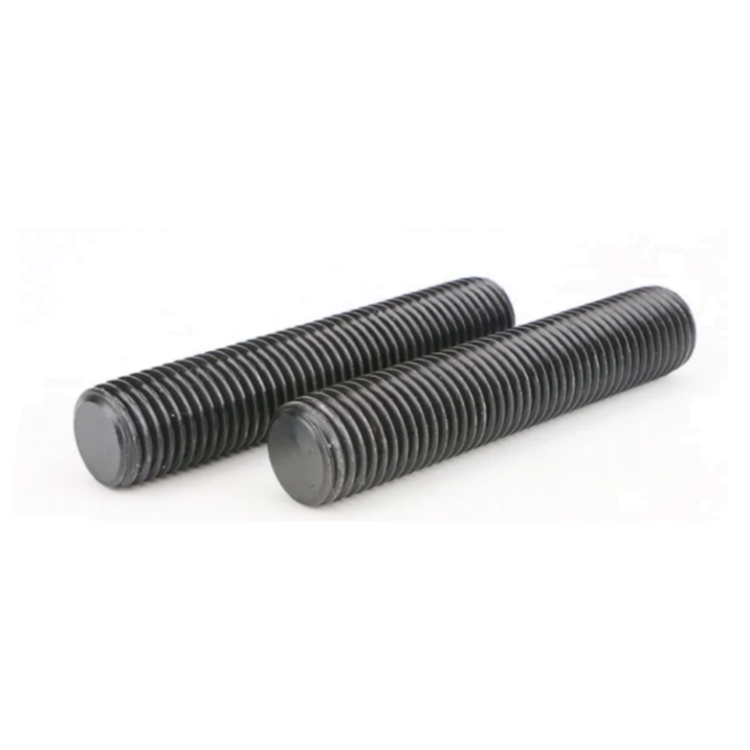High-Quality Custom Bolts for 2010 to 2032 Applications with Exceptional Durability and Performance
Jul . 28, 2024 03:24 Back to list
High-Quality Custom Bolts for 2010 to 2032 Applications with Exceptional Durability and Performance
Understanding Custom 10-32 Bolts A Comprehensive Guide
When it comes to fasteners, bolts play an essential role in a wide range of applications, from construction to manufacturing. One common type of bolt that has gained popularity is the custom 10-32 bolt. Understanding the specifications, applications, and benefits of these bolts can help engineers and manufacturers make informed decisions about their fastening needs.
What is a 10-32 Bolt?
The term 10-32 refers to two critical specifications of the bolt the diameter and the thread pitch. Specifically, a 10-32 bolt has a nominal diameter of 0.1900 inches and a thread pitch of 32 threads per inch. This means that the distance between the threads is quite close, allowing for a strong grip when fastened. It’s important to note that the 10 designates the size, while 32 indicates the number of threads per inch, which is characteristic of Unified National Fine (UNF) threads.
Customization Options
One of the main advantages of 10-32 bolts is the ability to customize them for specific applications. Custom 10-32 bolts can be manufactured in various materials, such as stainless steel, carbon steel, brass, and nylon, depending on the desired strength, corrosion resistance, and thermal properties. Furthermore, the length, coating, and head style can also be tailored to meet unique project requirements.
For instance, some applications may require hex heads for better grip with a wrench, while others might prefer socket heads for an aesthetically pleasing finish and a lower profile. The versatility in design and material makes custom 10-32 bolts an excellent choice for specialized tasks.
Applications of 10-32 Bolts
custom 10 32 bolts

Custom 10-32 bolts are found in numerous fields, including electronics, automotive, and general manufacturing. In the electronics industry, these bolts are often used to assemble devices where space is at a premium, as their smaller size allows for compact designs. In automotive applications, they may be utilized to secure various components, ensuring safety and durability.
Another common application is in mounting hardware, where precision and reliability are crucial. The fine threads of a 10-32 bolt hold tightly under vibration, an essential characteristic in environments like automotive engines or machinery where movement and stress can lead to fastener failure.
Benefits of Using Custom 10-32 Bolts
The choice to use custom 10-32 bolts offers several advantages. First, the ability to customize ensures that manufacturers can select the appropriate material and specifications to withstand their unique operating environments. For instance, using stainless steel bolts helps resist corrosion, while nylon bolts can be advantageous in reducing weight or preventing electromagnetic interference.
Moreover, the precision manufacturing process available today allows for high-quality tight tolerances. This means that a custom 10-32 bolt can be produced to meet specific performance criteria, leading to improved assembly time and reduced risk of failure in the final application.
Conclusion
Custom 10-32 bolts are an essential component across various industries, providing strength and reliability in fastening applications. Their customization options, combined with optimal performance characteristics, make them an ideal choice for engineers and manufacturers looking to enhance their product designs. As technology continues to evolve, the demand for specialized fasteners like custom 10-32 bolts is likely to grow, underscoring their importance in modern manufacturing and construction practices. Understanding their features and applications will equip professionals with the knowledge necessary to choose the right fastener for the job, ensuring efficiency and durability in their projects.
Latest news
-
High-Quality Panel Stud Bolt Reliable Panel Stud Bolt Factory & Suppliers
NewsJul.08,2025
-
High-Precision Fine Thread Locknuts Manufacturer & Supplier Custom Solutions
NewsJul.08,2025
-
PH Imperial Stud Bolt – High Strength Fasteners from Leading Supplier & Factory
NewsJul.07,2025
-
High-Quality Allen Wrench Bolts Leading Factory, Company & Suppliers
NewsJul.07,2025
-
Wholesale Ball Stud Bolt - High Quality Supplier & Factory Price Reliable Wholesale Ball Stud Bolt Company
NewsJul.06,2025
-
High-Strength Alloy Bolts Manufacturer & Supplier Quality Alloy Fasteners Factory
NewsJul.06,2025
